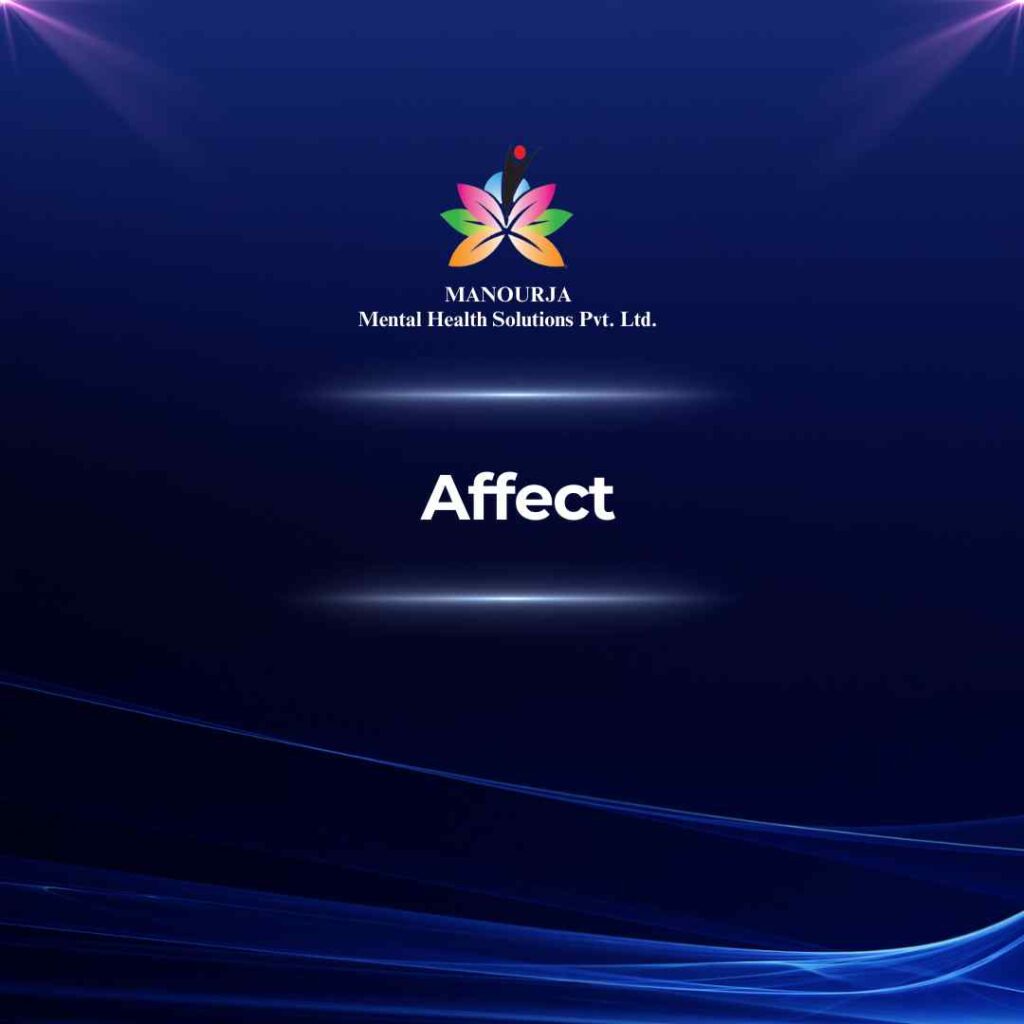Affect

“Affect” refers to the visible expression of emotions and feelings. This includes facial expressions, tone of voice, body language, and other behaviors that show how someone feels. Affect can match (be appropriate to) or not match (be inappropriate to) the person’s internal emotions and the context of the situation.
Affect as a Sign and Symptom of Mental Illness
In mental health, affect can change in various ways, indicating potential mental illnesses. These changes include:
- Blunted Affect: Less intense emotional expression.
- Flat Affect: Almost no visible emotional expression.
- Inappropriate Affect: Emotional responses that don’t fit the situation or internal feelings.
- Labile Affect: Rapid and unpredictable changes in emotions.
- Restricted or Constricted Affect: Limited range and intensity of emotional expression.
Mental Illnesses Associated with Altered Affect
- Flat or Blunted Affect: People might show little to no emotion on their face, in their voice, or through their body language, even if they feel emotions inside.
Depression (Major Depressive Disorder):
- Blunted or Flat Affect: People may show reduced emotional responses, appearing emotionally unresponsive or numb.
- Labile Affect: During manic or hypomanic episodes, emotions can change quickly and inappropriately. During depressive episodes, emotions can be flat or blunted.
Borderline Personality Disorder (BPD):
- Labile Affect: Emotions can shift rapidly and extremely, often unpredictably and intensely.
Post-Traumatic Stress Disorder (PTSD):
- Restricted Affect: Emotional numbing or having a limited ability to feel emotions, especially positive ones.
Autism Spectrum Disorder (ASD):
- Flat or Inappropriate Affect: Individuals might show flat affect or emotions that don’t match the social context, making social interactions difficult.
Obsessive-Compulsive Disorder (OCD):
- Blunted Affect: Intense focus on obsessions and compulsions can lead to restricted emotional expression.
Schizoaffective Disorder:
- Blunted or Inappropriate Affect: Similar to schizophrenia, but with added mood disorder symptoms, leading to complex emotional expressions.
Recognizing changes in affect and their link to mental illnesses can help in diagnosing and planning treatment. Approaches might include therapy, medication, and support to help individuals manage their emotions and improve their quality of life.
At MANOURJA, we believe in the transformative power of counseling. Our experienced therapists offer a safe and supportive space where you can explore your thoughts, emotions, and challenges. Through personalized counselling sessions, we’ll work together to develop coping strategies, build resilience, and achieve lasting positive change. Discover the path to a healthier, happier you with MANOURJA counselling services.
MANOURJA Rehabilitation Services
At MANOURJA, we’re dedicated to helping you in rebuild your life, after difficult times. Our rehabilitation services focus on understanding what you need to move forward, whether you’re recovering from addiction, trauma, or any psychological – social challenges. We create personalized plans, that are all about helping you, regain your strength and find hope again. With a caring team by your side, you’ll have the support to make real progress and take steps toward a brighter, healthier future.
